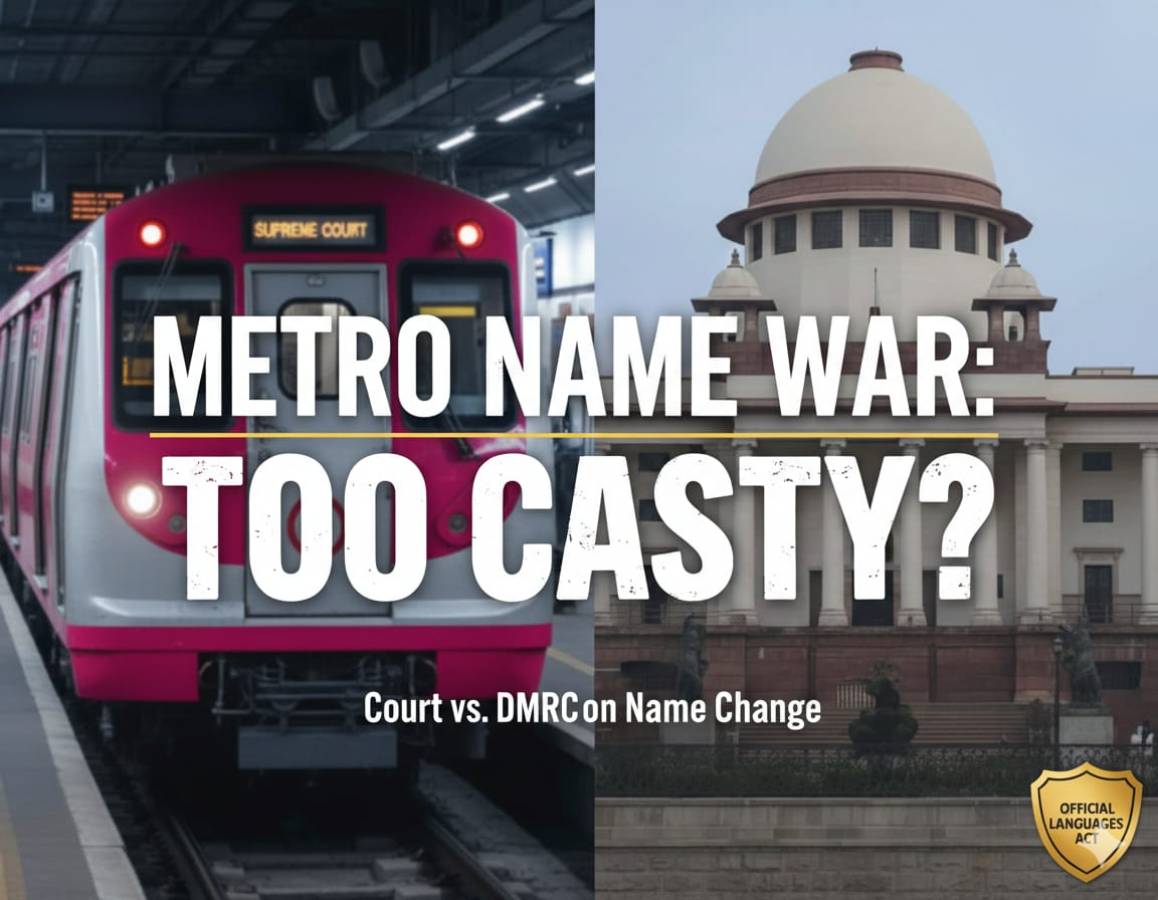
As Delhi once again struggles under a thick cover of toxic smog, the Supreme Court has stepped in with a strong message for both the Centre and the Delhi government. On Tuesday, the court gave statutory powers to the long-defunct Delhi Ridge Management Board (DRMB) and criticized the government for failing to protect the Ridge, often described as the city’s “green lung.” The move is seen as a major step toward safeguarding one of Delhi’s last natural shields against air pollution and encroachment.
A Lifeline for the Capital’s Ecology
The Delhi Ridge is a vital part of the Aravalli range that runs through the city. It plays a key role in maintaining ecological balance by acting as a natural barrier against dust storms from Rajasthan and as a green filter for Delhi’s polluted air. Despite its importance, large portions of the Ridge have been encroached upon or neglected for years.
The Supreme Court bench, led by Chief Justice of India Bhushan R. Gavai and Justice K. Vinod Chandran, said the DRMB must now function as a single-window authority for all matters related to both the Delhi Ridge and the Morphological Ridge. The Board will include senior officials from the Delhi and Union governments, as well as members of the Central Empowered Committee (CEC) and other civic and environmental bodies.
Encroachment and Neglect
According to the CEC report submitted earlier this year, around 308.5 hectares of Ridge land, or roughly 5 percent of the total area, are under encroachment. The report divided the Ridge into four zones: the Northern Ridge, Central Ridge, South-Central Ridge, and Southern Ridge. Despite several oversight committees, including one formed by the National Green Tribunal in 2021, very little progress has been made in clearing illegal constructions or restoring damaged areas.
The Supreme Court expressed disappointment over the Delhi government’s inaction, stating that there had been no visible efforts to secure the Ridge’s boundaries or protect its sanctity. The judges noted that without urgent intervention, the Ridge could lose its ecological significance, worsening the capital’s already alarming air quality.
Accountability and Transparency
To ensure stronger governance, the court has given the Ridge Board statutory backing under the Environment (Protection) Act. This means the Board’s functioning will now come under the jurisdiction of the National Green Tribunal and will be subject to Right to Information (RTI) rules. The Supreme Court also ordered that a standing committee be created within the DRMB, chaired by a CEC member, and include Delhi’s Principal Chief Conservator of Forests, two civil society representatives, and environmental experts.
The court further directed the DRMB to file compliance reports every six months and the CEC to submit progress updates to the court every three months. The bench emphasized that statutory authority and regular monitoring would bring greater administrative discipline and transparency to the protection of the Ridge.
Final Take
Delhi’s pollution levels have once again reached hazardous levels this winter, forcing schools to close and residents to stay indoors. The revival of the Ridge Board comes at a critical time when the city desperately needs its natural green covers to combat rising pollution. Environmentalists have long argued that protecting the Ridge is not just an ecological necessity but a public health priority.
If implemented effectively, the Supreme Court’s decision could mark a turning point in Delhi’s environmental governance. It signals a move from short-term emergency measures to long-term ecological protection. The challenge now lies in strict enforcement, political will, and public cooperation.
The Ridge is more than a patch of forest. It is a living ecosystem that supports biodiversity, cools the city’s microclimate, and absorbs pollutants. Losing it would mean losing a vital defense against Delhi’s worsening pollution crisis. The court’s order is not just a directive to the government but a reminder to every citizen that protecting nature is the only sustainable path to a healthier and cleaner future for the capital.





















